How to rebuild a city with Karam Alkatlabe

Meet Carmen Embil-Villagra: first year PhD student in Theoretical Physics
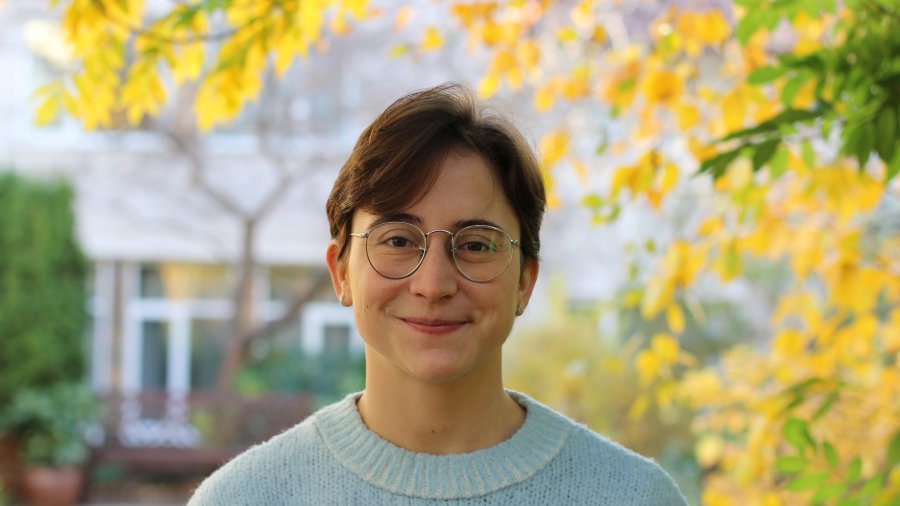

Carmen Embil-Villagra is a first-year PhD student in Theoretical Physics from Spain. She was the recipient of the first Wolfson College - CDT PhD Studentship for Women in the Physical Sciences, a 4-year award jointly funded by Wolfson College's Fund for Women in STEM, the Cambridge Trust and the Cambridge Centre for Doctoral Training in Data Intensive Science (CDT).
Often finding herself as ‘the only woman in the room’, Carmen is a strong advocate of studentships that support female researchers in STEM fields where they are under-represented. As Wolfson's Senior Tutor, Dr Susan Larsen, commented when launching the scholarship competition earlier this year, 'With this new PhD studentship Wolfson expands its efforts to enable students to pursue postgraduate study in fields where they are currently under-represented. This award is especially meaningful as it continues a proud tradition of distinguished women scientists at Wolfson, from founding Fellow Karen Spärck Jones through to our current President, Professor Jane Clarke.'
Can you briefly summarise your route to Wolfson? What did you do before starting your PhD here?
Before coming to Cambridge, I studied a joint degree in Physics and Mathematics in Oviedo, my hometown in Spain. I never thought that going to Cambridge was a real option for me. I come from a rather rural region of Spain, so I didn’t know anyone that had been to Cambridge before me and coming to a university like this felt like an experience completely out of reach.
However, I knew that I wanted to continue in academia, so I ended up making that ‘just in case’ application to the Master’s in Applied Mathematics and Theoretical Physics (aka Part III) since it precisely matched my research interests. When I received the news that I had been accepted, I couldn’t believe it and, in fact, I didn’t allow myself to, since I didn’t have the finances to pay for the programme. It was only after being awarded funding from the ‘la Caixa’ Foundation that it finally felt true. I couldn’t be prouder of myself for getting that distinction by the end of my master's year that secured me a place for the PhD in Theoretical Physics.
Can you explain your project in simple terms?
Cosmology aims to explain some of the Universe’s most fundamental questions. We seek to understand its beginning (if there ever was one), evolution, and composition by looking at the largest scales possible.
This means that whilst an Astrophysicist focuses, for example, on the properties of specific planets or galaxies, Cosmologists are interested in the distribution of all the elements; we are preoccupied with how to describe those physics in a way that allows us to infer what happened during the very first stages of our Universe.
Why is your subject and topic important?
On the one hand, the most immediate impact in society comes from having access to the knowledge itself. Being able to explain how the Universe is the way it is and why, should be (in my opinion) relevant and exciting enough!
On the other hand, if you’re looking for a more practical impact, that usually happens in the longer term for Theoretical Physicists. History has shown us that it is by pushing the frontiers of science and trying to solve the most complex questions that one finds the most revolutionary inventions; through this, we can change and transform society. As an example, the World Wide Web (www) was invented at CERN to share information between scientists around the world, and GPSs couldn’t be calibrated if it wasn’t for Einstein’s Relativity!
You were the first student to receive the CDT PhD Studentship for Women in the Physical Sciences. How did that feel and why are such studentships important?
I was very honoured when I found out I had received this Studentship for Women in the Physical Sciences. It was thanks to this award that I was able to further my education through a PhD and initiate my research career, and I am particularly glad to be doing so through a scholarship made specifically for women in STEM.
My field is obviously very male-dominated, and l still find myself the only woman in a room full of men at times, so this issue is constantly on my mind. I do believe that these kinds of schemes that enable women to research in areas where we are so under-represented are the first step to making change.
It is key that we give opportunities to young women in STEM, and provide them with supportive and inclusive environments in which to work and thrive; this is what will make a difference to more equal representation in future generations.
How have you found settling into Wolfson life so far?
My first months at Wolfson have been unexpectedly easy. Having completed my master’s at a different college, I came to really appreciate Wolfson’s vibrant postgrad and mature community.
The returning students, as well as WCSA members and Wolfson’s staff, have been making it a very welcoming and open space, especially in the first few weeks. There were so many different events every day that it was almost impossible not to socialise and make new friends, all you needed to do was to show up! In particular, I am a big fan of Wolfson’s social nights - we definitely have the best BOPs (Big Organised Parties) in Cambridge, and I never miss a comedy night.
A great thing about Cambridge too is how easy and accessible it is to try out new sports and discover different societies. This year I am starting to get involved with the rugby team, which is a sport I have always wanted to try. The girls from CURUFC (Cambridge University Rugby Union Football Club) make it such a fun and welcoming environment, and I’ll probably continue playing for as long as I can!
Do you have any tips for prospective students looking to start a PhD at Cambridge? Anything you wish you had known?
From the outside, Cambridge can seem really intimidating and it’s easy to feel like you won’t belong here. I wish I had known that this feeling goes away quite quickly when you actually get here and realise this is just another university filled with people who are passionate about what they study. Cambridge is a busy and demanding place, but I would advise you to make an effort in the first few weeks of term to attend events at your College and favourite societies. It is definitely the best period to make friends and meet new people with your same interests.
In terms of academics, you want to work on problems that you find exciting. However, a good supervisor will also help to make those problems interesting, and will keep you motivated throughout your PhD!
This article is part of the 2023/4 Postgraduate Student Profile Series:
Applications are still open for the 2024 CDT PhD Studentship for Women in the Physical Sciences, and for many other Wolfson College-specific studentships. Click here to learn more.
You can also find out how to apply to study for a postgraduate course at Cambridge University as a Wolfson College student, and watch our postgraduate video, introducing the exciting academic and social atmosphere in College.
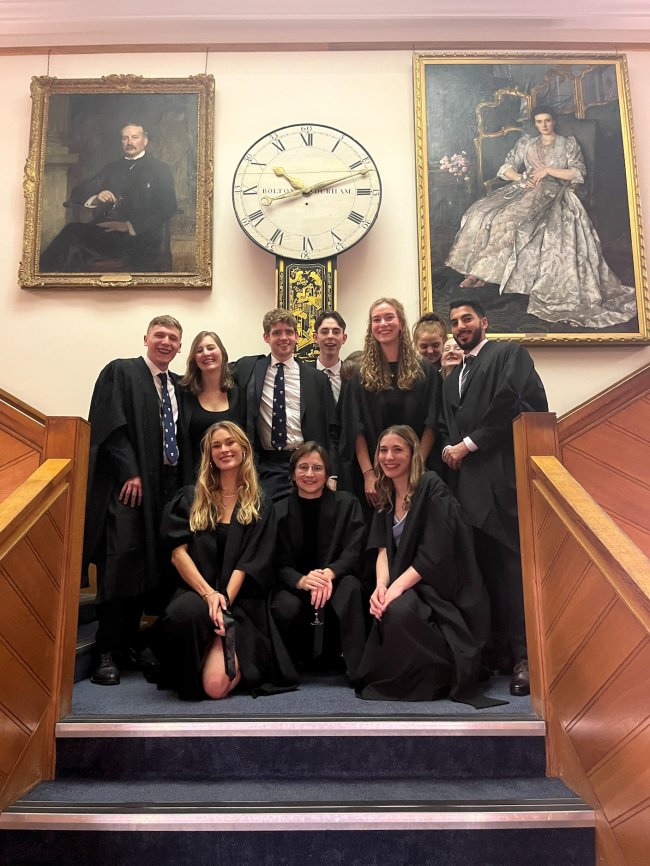
Matriculation at Wolfson
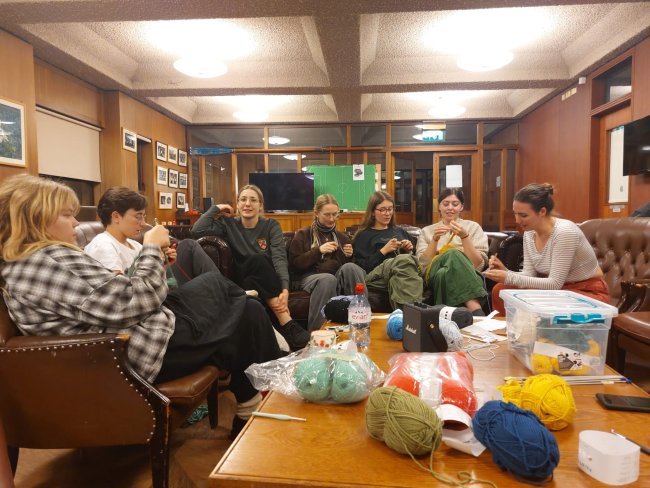
Crochet at Wolfson with friends
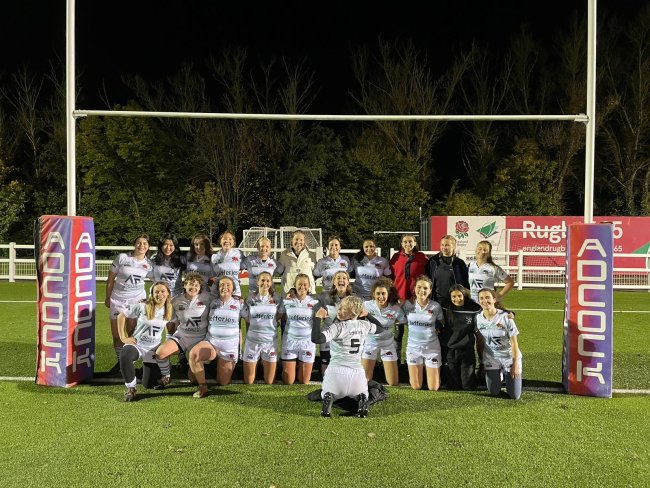
First game with the rugby team
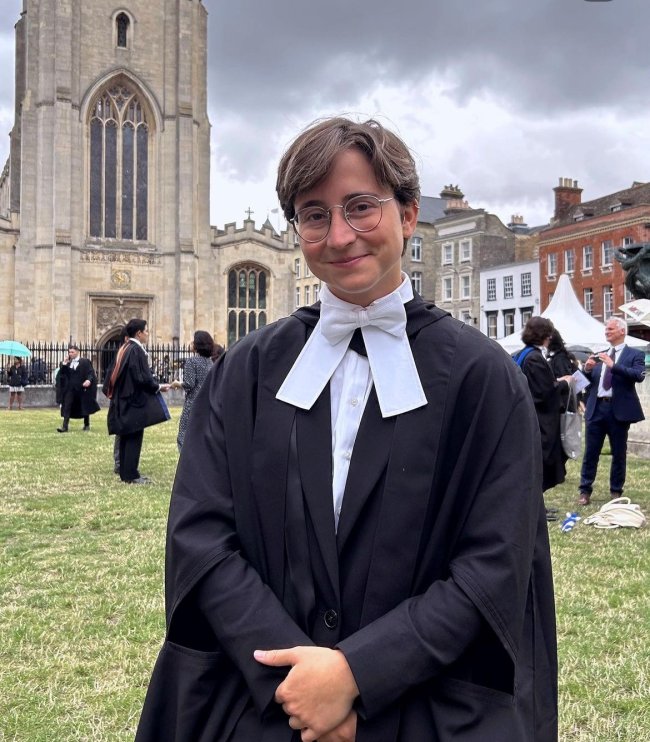
Carmen graduating from her master's
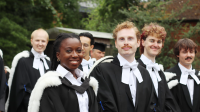
Graduation ceremonies are the culmination of students’ hard work and commitment, and a moment to celebrate the completion of their Cambridge degree.
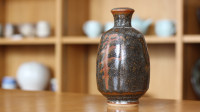
A display of works from the Bradshaw-Bubier studio pottery collection.
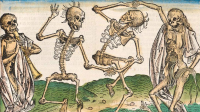
How we can develop ‘death activism’ – a variety of tactics and posthuman practices which celebrate death, its inevitability, its forms, from the slow to times of crisis, and how can trauma and mourning emerge as their own forms of expression, or even activism?
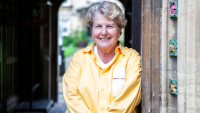
We are delighted to welcome Sandi Toksvig OBE as our speaker for Wolfson's prestigious Lee Lecture this year.

Join us for the 2024 Wolfson Research Event: an interdisciplinary academic conference organised by students to showcase the diversity of the research carried out by Wolfson students.







